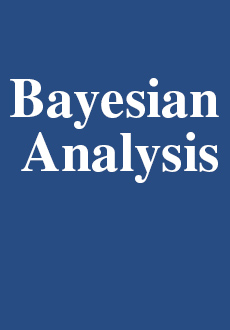Abstract
The functional linear regression model is a common tool to determine the relationship between a scalar outcome and a functional predictor seen as a function of time. This paper focuses on the Bayesian estimation of the support of the coefficient function. To this aim we propose a parsimonious and adaptive decomposition of the coefficient function as a step function, and a model including a prior distribution that we name Bayesian functional Linear regression with Sparse Step functions (Bliss). The aim of the method is to recover periods of time which influence the most the outcome. A Bayes estimator of the support is built with a specific loss function, as well as two Bayes estimators of the coefficient function, a first one which is smooth and a second one which is a step function. The performance of the proposed methodology is analysed on various synthetic datasets and is illustrated on a black Périgord truffle dataset to study the influence of rainfall on the production.
Citation
Paul-Marie Grollemund. Christophe Abraham. Meïli Baragatti. Pierre Pudlo. "Bayesian Functional Linear Regression with Sparse Step Functions." Bayesian Anal. 14 (1) 111 - 135, March 2019. https://doi.org/10.1214/18-BA1095





